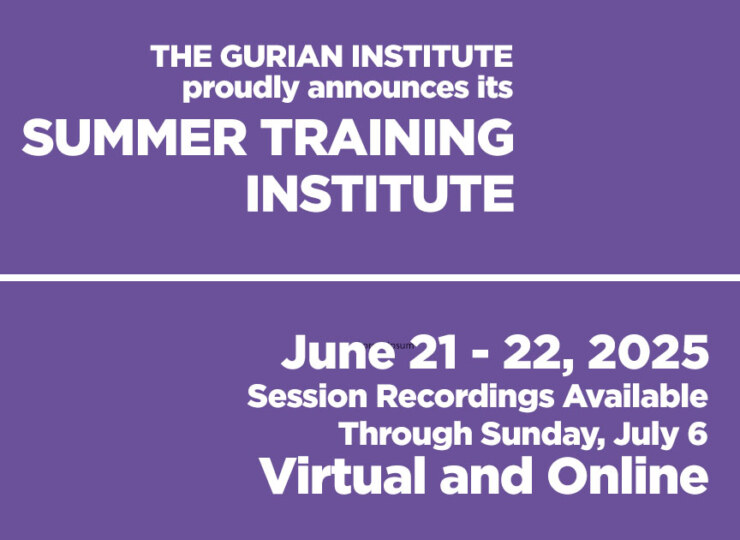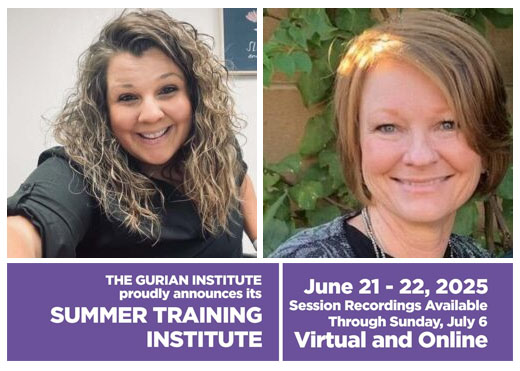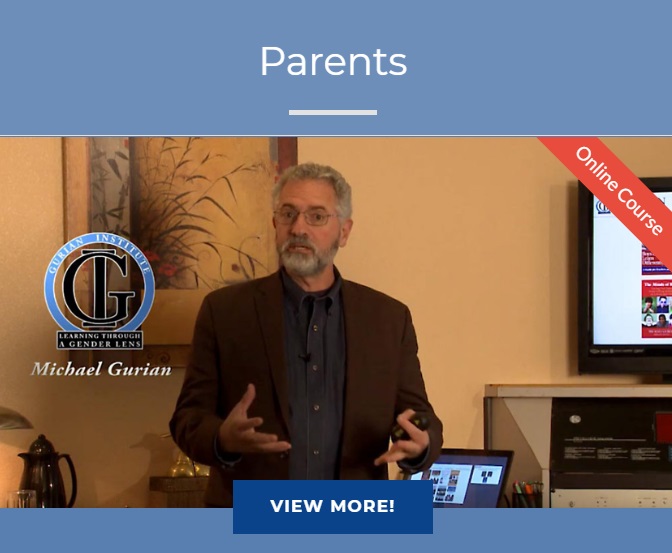At the Gurian Institute, we frequently receive questions from parents about how to use the latest research on developing brains to inform their parenting decisions. One particular area of concern is how much screen time to allow children to have. When they’re little, it’s relatively easy to tell them, “Time to turn it off and go find something else to do.” However, as they approach the teen years, you might find yourself engaged in a power struggle similar to the one this parent describes:
My son and I are having a big fight about technology use. I am taking screens away, after a big shift in screen time (which was non-existent for him before the pandemic) and it is rough. He is almost 12 and he wants research and proof for what I am saying. Do you all have a specific book or research list, that you could recommend about the negative impacts of screen time on young, developing brains?
Ok, so first of all, I want to point out that this young man is exhibiting healthy brain development activity! When children are younger, their thinking tends to be more concrete, more black-and-white. What can I see, touch, taste, hear, smell? Right is right and wrong is wrong. As the brain evolves into adolescence, kids become more capable of abstract thought: black-and-white gives way to gray as they’re able to notice the nuances of a particular issue. What is right or wrong can be more circumstantial. Does “fair” necessarily mean “equal”? Is complete honesty always the best policy? And why does my parent get to decide how much screen time is right for me?
On the one hand, this newfound awakening to their ability to engage in complex thinking can lead to a surprising amount of push-back on what used to be no-brainer rules and routines. You might feel challenged to defend decisions and perplexed about why some things are suddenly issues that lead to arguments. On the other hand, what an exciting time for your child—and for you! They’re growing up! Conversations can happen on a deeper level and you have such an opportunity to grow your child’s awareness of important elements to consider as they make decisions about who they want to be in the world. Your willingness to value their push-back as an opportunity to grow their skills can make all the difference in whether you engage in arguments…or discussions.
Let’s use the screen time issue as an example.
Get Informed Together!
Invite your child to do some research with you, and also some independent research. You might invite them to find three articles or books that support the use of screens and three that express caution about it. You do the same, and then compare notes.
Here are a few to get you started:
This website has a lot of research on screen use and its effects, in addition to current trends and recommendations–great for you and your child to explore!
- Articles on the Gurian Institute website:
https://gurianinstitute.com/guest-blog-alternatives-to-screen-time-for-healthy-childhood/
https://gurianinstitute.com/8-reasons-social-media-is-no-good-for-kids/
https://gurianinstitute.com/how-using-social-media-affects-teenagers/
- American Academy of Pediatrics (several resource articles here):
https://www.aap.org/en/patient-care/media-and-children/additional-research/
- Saving Our Sons by Michael Gurian pp 183 – 231
5. The Minds of Girls by Michael Gurian pp 167 – 189
Read these pages yourself, and then decide what parts you want your child to read and discuss with you. There are several topics that might be helpful in guiding your discussions about their growing maturity and how they’re demonstrating it.
And check out:
The Screen Time Diet: helping your teen find balance with their tech
Collect Data
For one week, you and your child record how much time they spend on the following four activities. (You might collect data on yourself, as well, in the interest of self-awareness!)
*interacting in real time with real people (friends, adults, school, church, other social activities)
*physical exercise both formal (team sports or classes) and informal (riding bikes, running around outside with friends, etc.)
*academic pursuits – Are grades good? Is the child attending to assignments and, even if it’s summer, reading, taking a class to learn something new, creating or inventing something, etc.?
*screen time – watching TV, social media, gaming, etc.
If your child is spending too much time with screens, it often shows up in a lack in one or more of the first three on this list.
Solution Focused Discussions
In addition to my work with the Gurian Institute, I’m also a Positive Discipline Trainer (for more information, go to www.positivediscipline.org). The 3 R’s and H of Solutions come from this program, and they’re really helpful in guiding you and your child to positive outcomes.
The goal is to create a solution that is
Related to the issue of healthy (or at least, not detrimental) use of screen time
Respectful to everyone involved
Reasonable (it’s fair, appropriate, sensible)
Helpful in solving the problem
Step 1: Brainstorm possibilities for guidelines and boundaries. Write down any idea, no matter how nutty or improbable it seems.
Step 2: Cross off any possibilities that do NOT meet the 3 R’s and H of Solutions.
A word about Reasonable: as the parent, you get to determine what’s reasonable to you. If your child wants 5 hours a day of screen time, and that’s not reasonable, then that gets crossed off the list. By the same token, if you want them to have only 30 minutes of screen time a day and they think that’s unreasonable, respect that and cross it off. What is reasonable to both of you, at least in terms of a starting compromise, is somewhere in between.
Step 3: Agree to try the solution(s) that meets the 3 R’s and H criteria for a certain amount of time…maybe a week. Then get back together to see how the plan is working. If it’s not working, go back to the drawing board, so to speak, and follow the solution-focused process again. As many times as it takes to get to the “right solution.” Sometimes, we have to try several different possibilities before we find what works best. And notice the skills that you’re modeling and your child is practicing through the process! (When you’re finished reading Dr. Gurian’s books, I highly recommend Positive Discipline for Teenagers by Jane Nelsen and Lynn Lott.)
Remember, You’re the Parent!
You get to decide what you’re open to negotiating about. Some things just ARE because YOU SAY SO. You have the fully developed frontal lobe, so you can see the big picture when your child sometimes can’t. Do keep in mind that, in order for your child to develop executive functioning skills that they need to be successful decision makers, you need to provide opportunities for them to practice those skills. So do some research (together!), collect some data (together!) and enjoy this new stage of your child’s development!
–Eva Dwight, Med. CPDT, eva@gurianinstitute.com.











An option for the parent facing this is to find a responsible teen who is a little older than your child. Maybe it would be a college student. Explain the situation you are facing with your child and ask for suggestions that would be helpful and reasonable. This college student will have some experiential insight into the screen issue that the parent doesn’t have and will have more maturity than the younger teen has.
A follow up tip is to come up with a rough draft of an idea. Then run it by a friend who has kids the same age. Invite them to poke as many holes in your plan as they can. Then make a few adjustments to your idea.
Great ideas. Thank you!